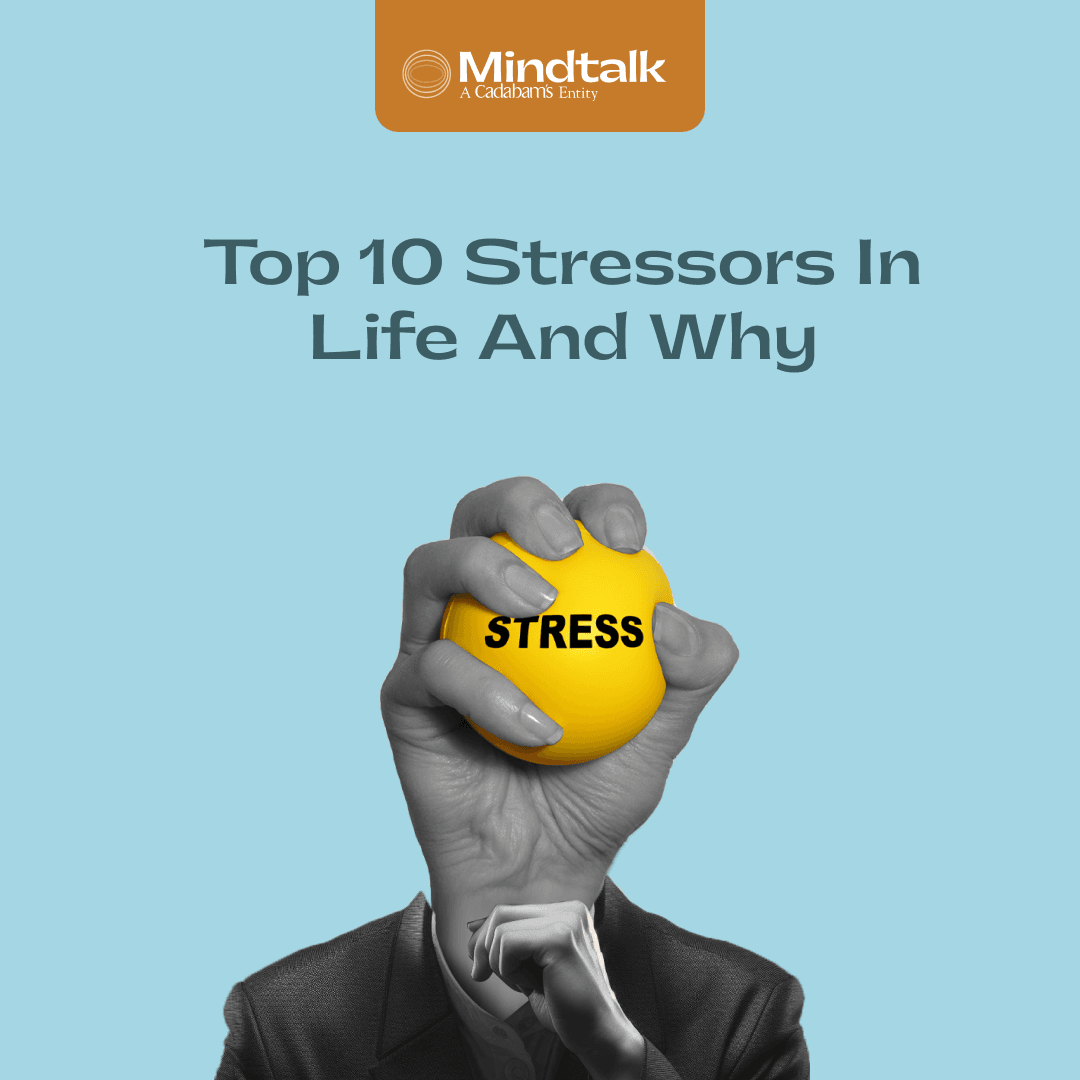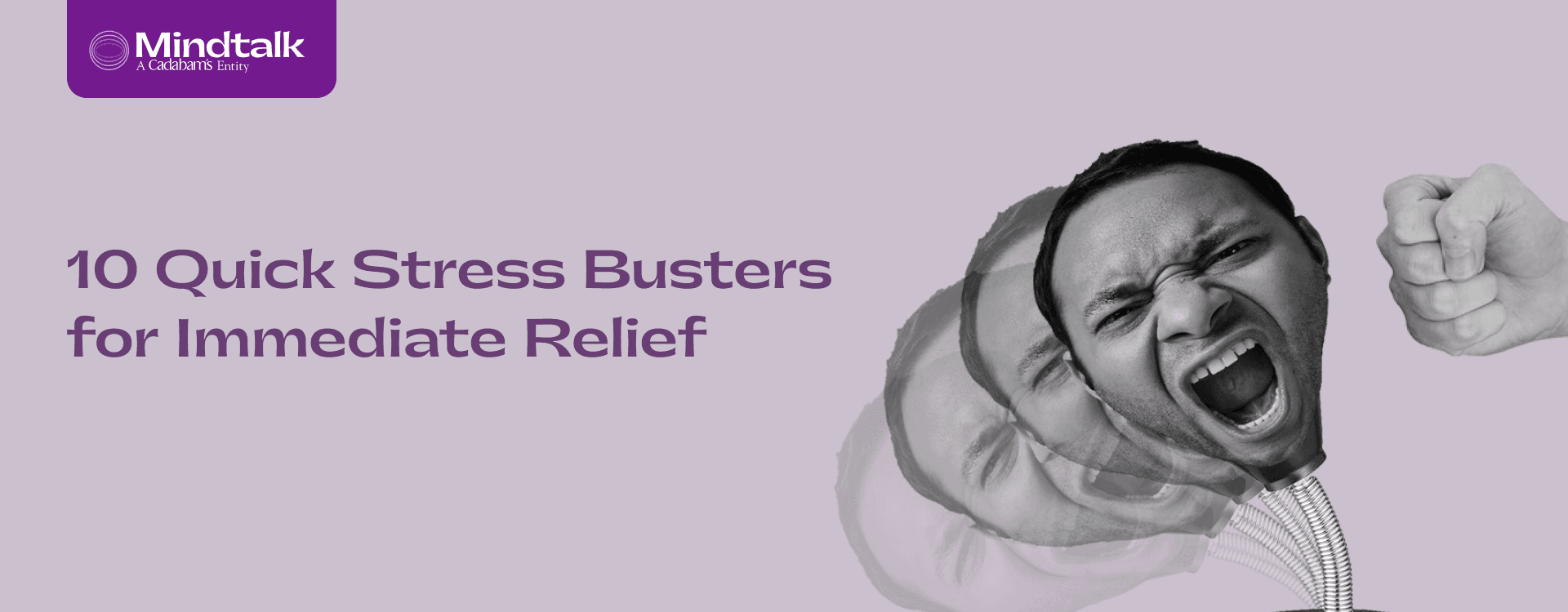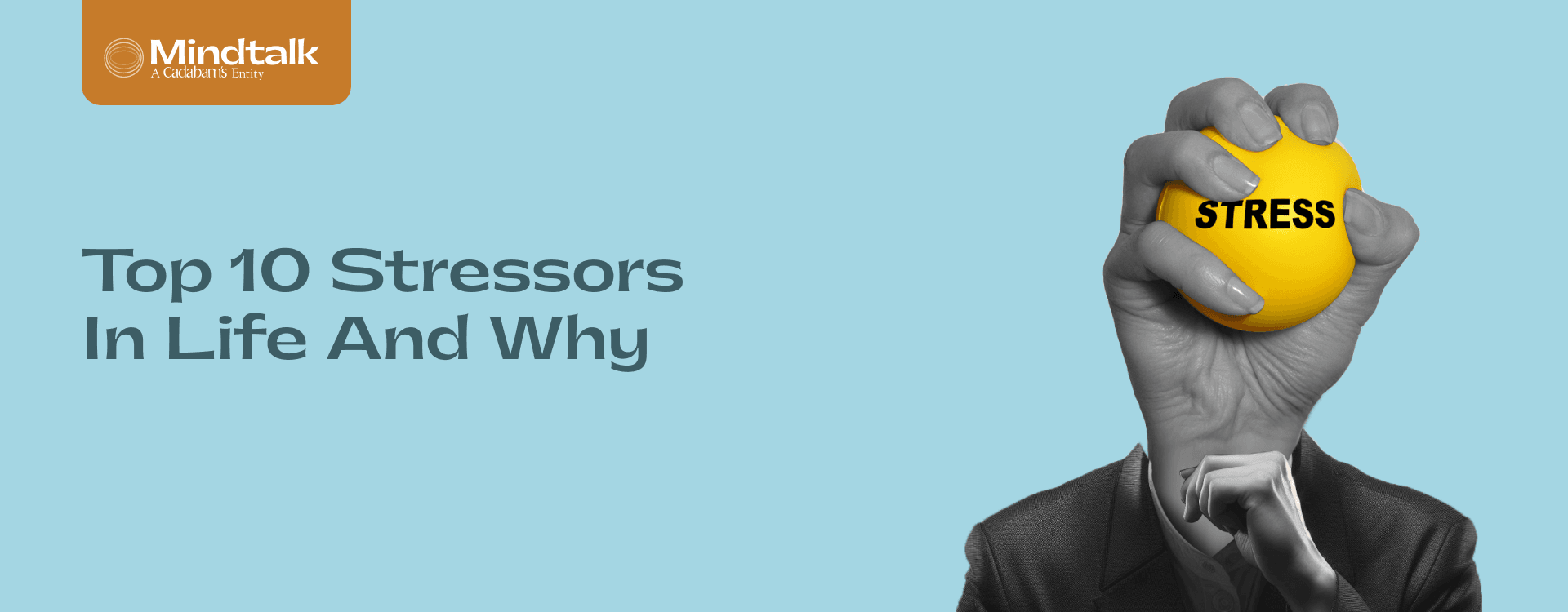Exploring The Top 10 Stressors In Life

No matter what you do it’s highly probable that you will come across something or the other that can either cause you a lot of stress or even just slightly tick you off. Let’s look at the top 10 ways in which this can happen, understand it, build resilience, and work towards a life with lesser stress.
Understanding Life's Major Stressors
Stressors are the events or situations that trigger your body's "fight-or-flight" response. They can be anything from financial worries to traffic jams and vary greatly from person to person. While some stressors are universal, what stresses you out might be a breeze for someone else!
What Is A Stressor?
Think of a stressor as any event, situation, or even thought that triggers your body's "fight-or-flight" response. This could be a looming deadline, a heated argument, or even chronic pain. While seemingly harmless things like traffic jams or noisy neighbors can be stressors, ultimately, it's your perception of the situation that determines if it triggers stress.
Difference Between Stress And Stressor
Stress and stressors are often used interchangeably, but there's a subtle difference. A stressor is an external (or internal) stimulus that creates a demanding situation. Stress is the body's physiological and emotional response to that demand. So, the traffic jam is the stressor, while the increased heart rate, clenched muscles, and feelings of frustration are the stress. Remember, not all stressors lead to stress! If you effectively manage the situation or reframe your thoughts, you can avoid the negative effects of stress.
The Top 10 Stressors In Life
From financial challenges to family drama, life throws us plenty of curveballs, which makes us prone to a bunch of stressors. Let’s look at the top 10 common stressors impacting our well-being and learn how to cope with them effectively.
Financial Challenges And Economic Stress
Balancing bills, saving for the future, and navigating economic uncertainty can create significant stress. Job security, debt, and unexpected expenses can weigh heavily, impacting mental and physical heal.
Workplace Pressure And Career Development
Meeting deadlines, managing workloads, and navigating office politics can lead to burnout and anxiety. Juggling career aspirations with demanding jobs can exacerbate stress, affecting performance and well-being.
Personal Relationships And Family Dynamics
Conflict, communication issues, and emotional strain within families and relationships can be major stressors. Balancing personal needs with those of loved ones and navigating challenging dynamics can take a toll.
Health Concerns And Chronic Illnesses
Living with a chronic illness or managing unexpected health issues can be incredibly stressful. The physical and emotional burden, combined with treatment concerns and uncertainty, can significantly impact your life.
Time Management And Work-Life Balance
Juggling work demands, personal commitments, and leisure time can feel overwhelming. Feeling constantly stretched thin and lacking control over your time can lead to stress, fatigue, and resentment.
Parenting Responsibilities And Childcare
Raising children is rewarding yet demanding. The pressures of balancing work, childcare, and emotional needs can be immense. Managing tantrums, sleep schedules, and developmental milestones can add to the stress load.
Educational Pressures And Academic Stress
Exams, deadlines, and the pressure to perform academically can be significant stressors for students. Balancing studies with personal life, meeting expectations, and navigating competition can lead to anxiety and burnout.
Social Expectations And Peer Pressure
Social comparisons, fitting in, and navigating social media can create unrealistic expectations and pressure to conform. The fear of judgment and exclusion can be significant stressors, especially for young people.
Life Transitions And Major Changes
Moving, starting a new job, ending relationships, or major life changes can be exciting but also stressful. Uncertainty, adapting to new situations, and saying goodbye to the familiar can trigger anxiety and require emotional resilience.
Environmental Factors And Global Issues
Climate change, political instability, and global crises can create feelings of helplessness and anxiety. Concern for the future, combined with limited individual control, can be significant stressors that impact emotional well-being.
Effects of Stressors on Your Mental Health
Chronic or intense stressors can wreak havoc on mental well-being in numerous ways. Anxiety and depression often take center stage, fueled by worries, negative thought patterns, and overwhelmed feelings. Stress can also disrupt sleep, leading to fatigue and irritability. It can hinder focus and memory, impacting work and relationships. Physical symptoms like headaches, muscle tension, and digestive issues add another layer of strain. If left unchecked, chronic stress can exacerbate pre-existing mental health conditions and contribute to substance abuse or unhealthy coping mechanisms.
Techniques For Managing Life's Stressors
No matter what obstacles life throws at you, building resilience is key! Let’s look at some simple yet powerful techniques to manage life’s stressors and find your inner calm.
Grounding Exercises
Feeling overwhelmed? Connect with your present moment through grounding exercises! Engage your senses with simple activities like focusing on your breath, feeling your feet firmly planted on the ground, or observing objects around you. This can help anchor you in reality and reduce tension.
Deep Breathing
Take a breath (literally)! Deep breathing activates your body's relaxation response, calming your mind and body. Breathe deeply from your belly, hold for a few seconds, and slowly release. Repeat several times whenever you feel stressed, anxious, or overwhelmed.
Manage Good Nutrition
Nourish your body to nourish your mind! Eating a balanced diet rich in fruits, vegetables, and whole grains provides essential nutrients that support your nervous system and emotional well-being. Avoid processed foods and excessive sugar, which can worsen stress symptoms.
Manage Social Media Time
Constant social media exposure can exacerbate feelings of inadequacy and FOMO (fear of missing out). Set limits on your screen time, curate your feed with positive content, and consider digital detox periods to allow your mind and body to truly unwind.
With Mindtalk Building Resilience Against Stressors
Life's stressors can take a toll, but you don't have to struggle in silence. At Mindtalk, we empower you to build resilience and navigate challenges with confidence. Our team of experts provides personalized guidance, evidence-based tools, and a supportive community to help you manage stress, improve emotional well-being, and thrive. Take control of your mental health today. Visit Mindtalk and start your journey towards a calmer, stronger you.
Suggested Topics
Similar Posts













